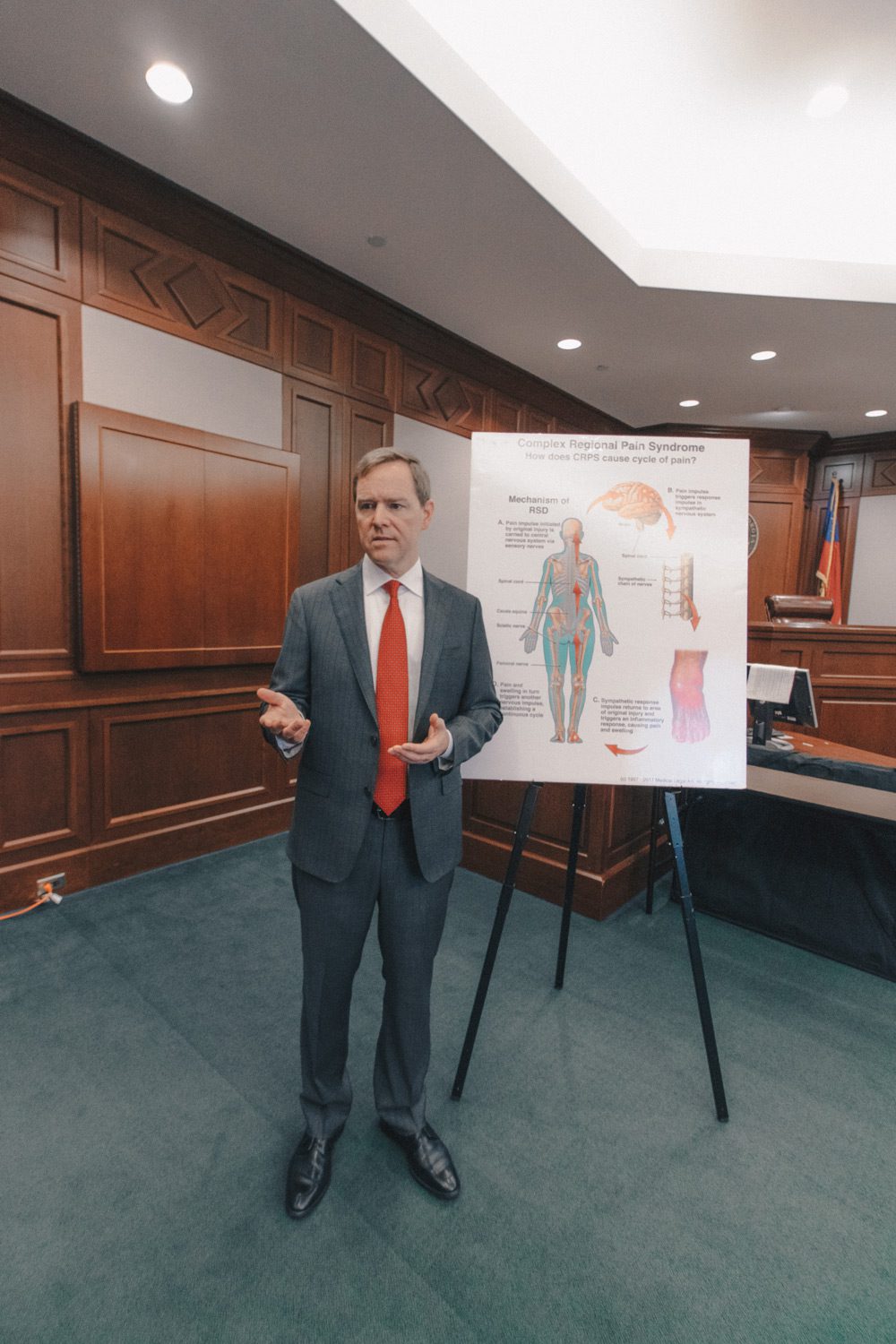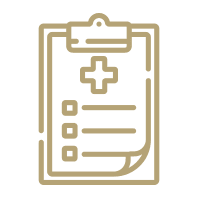Medical Negligence in Georgia
Securing fair and full compensation for victims of severe medical negligence
Medical negligence can be catastrophic for victims and their families, and cases against medical providers can be complex, so it’s critical to have experienced counsel. Bell Law Firm has extensive trial experience and has recovered hundreds of millions for medical negligence victims and their families.
How do you prove medical negligence?
Negligence is unreasonable conduct that causes harm to another person. Medical negligence occurs when unreasonable conduct by a healthcare provider harms a patient. You, therefore, must prove that the medical care you received was outside the standard of care. But how do you prove that? There’s a two-step process.
First, you have to prove reasonable care. Reasonable care is what typical medical providers do when treating patients under the same or similar circumstances. For example, if a patient comes to the emergency room with an altered mental status that came on suddenly, a reasonable ER physician would consider a stroke a possibility and order appropriate tests. What reasonable healthcare providers do is called the standard of care.
Second, you have to prove that your provider’s care was substandard, meaning it violated or fell short of the standard of care. In other words, you must prove that your provider failed to do what reasonable healthcare providers generally do in the same situation. In the example above, if the physician decides not to order appropriate imaging studies, the physician likely violated the standard of care for diagnosing or ruling out a stroke. Critical information isn’t relayed properly or timely in these cases, resulting in negligent behavior.
Bell Law Firm has experience working alongside healthcare providers to determine the standard of care and identifying areas where negligent healthcare providers have fallen short and harmed patients.

Bell Law Firm is one of Georgia’s leading law firms representing people devastated by severe medical negligence. Call us today at 404-249-6768 or email help@belllawfirm.com for a free consultation.
How does medical malpractice differ from medical negligence?
You may be asking how medical malpractice and medical negligence are different. Is there a distinction you should understand before pursuing a lawsuit? Do your specific injuries determine if you’ve been harmed by malpractice or negligence? The answer to all of these questions is no because malpractice is a type of negligence.
What is negligence?
Negligence is unreasonable conduct that causes harm to another. Texting while driving is unreasonable, so if a car crashes into you because the driver was texting and driving, the driver likely committed negligence. If you bring a negligence lawsuit, a jury will decide whether the driver met the “reasonable person standard” – whether the driver acted like a reasonable person would under the same circumstances.
What is malpractice?
Medical malpractice is negligence by medical providers. Medical malpractice occurs when unreasonable conduct by a healthcare provider harms a patient. For example, if a patient’s leg has to be amputated because doctors and nurses fail to treat the lack of a foot pulse as an emergency, the doctors and nurses probably committed negligence.
What are the most common types of medical negligence?
There are many different examples of medical negligence. Whenever a healthcare provider’s acts or omissions fall below the standard of care, it counts as medical negligence. These can include:
- Misdiagnosis
- Delayed diagnosis
- Mismanaged stroke
- Anesthesia mistakes
- Medication errors or improper administration of medication
- Failure to obtain informed consent
- Post-op evaluation failures
- Incorrect treatment
- Botched surgical procedures, like wrong-site surgeries
- Leaving a surgical instrument or other items inside a patient
How do I sue for medical negligence in Georgia?
If you or a loved one has been severely or permanently harmed by substandard care, you may want to file a lawsuit. Here’s how to start your medical negligence case.
- Find a qualified attorney with a history of success in medical negligence cases and experience taking cases all the way to trial. The greater the harm, the more providers, employers and insurers will get involved. That’s when you need the most qualified, experienced counsel.
- Obtain and review medical records. Once the attorneys have evaluated your case, they should help you obtain certified medical records from the healthcare organization where the negligence occurred. Qualified attorneys like Bell Law Firm will then review the medical records closely in consultation with medical experts to identify the precise actions and inactions that resulted in negligence.
- Obtain an expert affidavit. Once you and your attorneys have identified what went wrong, the case should be evaluated by qualified healthcare professionals (experts) who are willing to testify on your behalf. Some states, including Georgia, will reject the lawsuit if it is not supported by an expert’s sworn affidavit.
- File the complaint. A complaint is a document that launches the lawsuit. It should tell your story clearly and thoroughly based on the medical records and other evidence. A complaint should also spell out each instance of alleged negligence as a “claim” or a “cause of action.” That way, the court and defendants know you’ve done your homework and are backed by qualified attorneys and experts.
Keep in mind that every state has a deadline for filing a complaint. With narrow exceptions, Georgia requires filing within two years after the alleged negligence harmed the patient.
Bell Law Firm is ready to help you receive full and fair compensation. If you believe you have a medical negligence case, do not delay in contacting Bell Law Firm for a free consultation. Call us today at 404-249-6768 or email help@belllawfirm.com for a free consultation.
Our Practice Areas
Medical Malpractice
Cases involving patients that are harmed because a doctor, nurse or other medical professional fails to provide proper treatment.
Medical Negligence
Cases involving mismanaged stroke, paralysis, wrongful death and more.
Surgical Error
Cases involving wrong-site surgeries, retained foreign objects, nerve damage following surgery, sepsis and more.
Misdiagnosis
Cases involving misdiagnosis, delayed diagnosis and more.
Medication Error
Cases involving inappropriate or incorrect medication use.
Catastrophic Injury
Cases involving traumatic brain injury, premises liability, industrial accidents, trucking accidents and more.
Contact Us Today
This site is protected by reCAPTCHA and the Google Privacy Policy and Terms of Service apply.

